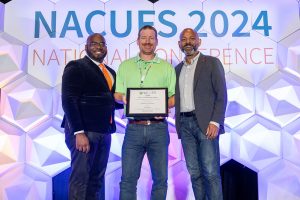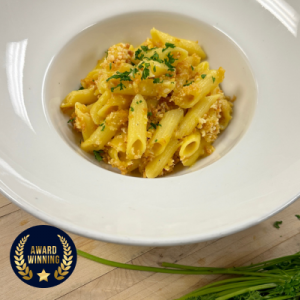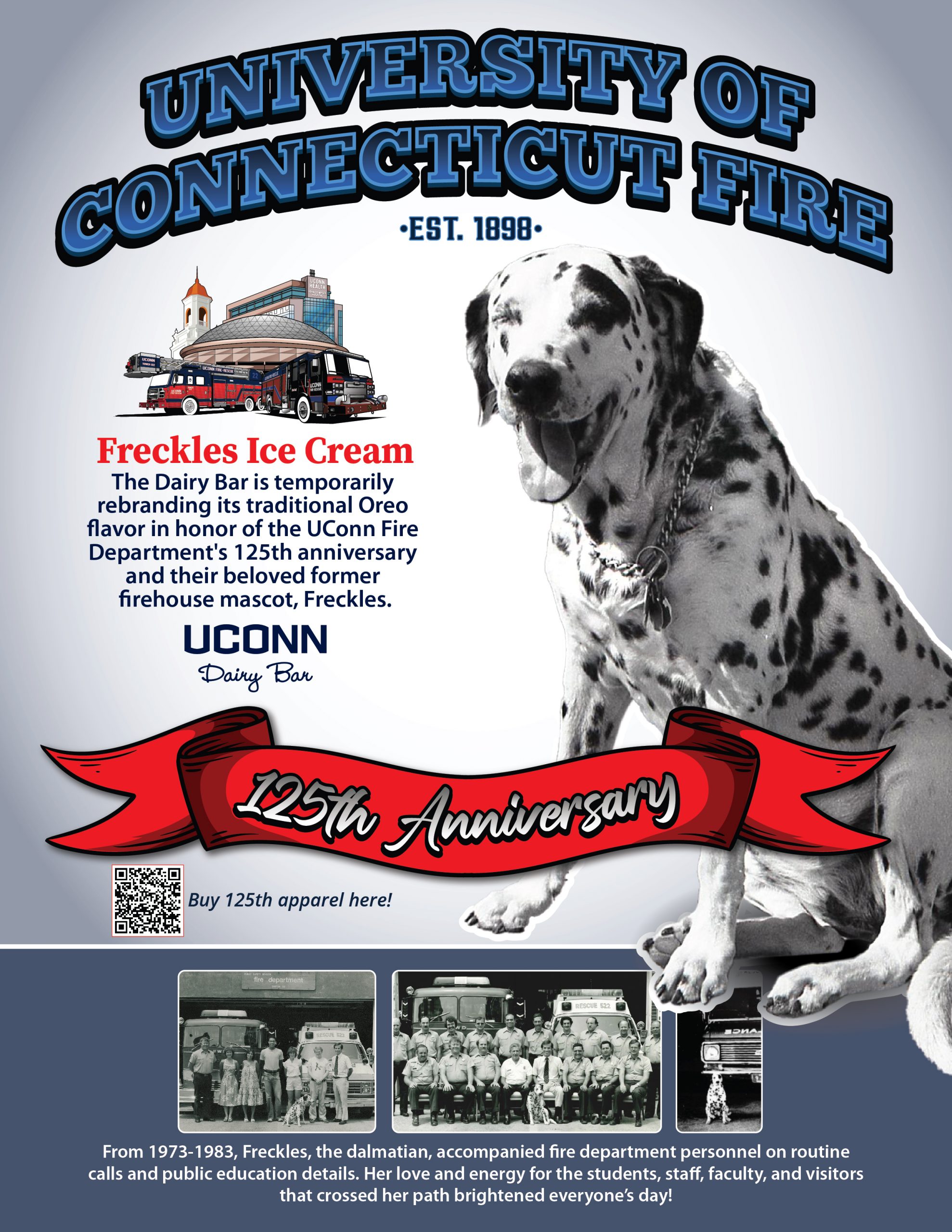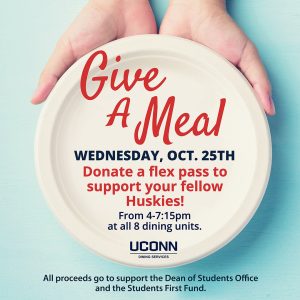Campus Dining’s newest location SAMBAZON® opened on February 6th in the Student Union, providing an option for Açaí Bowls.
 Storrs, Connecticut, February 24, 2025 – A delicious, quick-service açaí bowl shop is now open in the Student Union on the University of Connecticut (UConn) Storrs campus; SAMBAZON®, the world’s largest brand of organic and Fair Trade certified açaí products, is now serving refreshing bowls topped with fruits, berries, and other superfoods.
Storrs, Connecticut, February 24, 2025 – A delicious, quick-service açaí bowl shop is now open in the Student Union on the University of Connecticut (UConn) Storrs campus; SAMBAZON®, the world’s largest brand of organic and Fair Trade certified açaí products, is now serving refreshing bowls topped with fruits, berries, and other superfoods.
“We are excited to partner with the dining services team to open our doors on UConn’s campus and serve delicious food, with purpose, to the students and faculty,” said Ryan Black, SAMBAZON co-founder and CEO. “What’s unique about SAMBAZON is that in addition to sharing our signature açaí bowls, we have an opportunity to share our brand’s mission and values, which include a proactive solution to sustainable management of the Amazon Rainforest.”
Adding to the diverse repertoire of the dining locations on campus, SAMBAZON, which stands for Sustainable Management of the Brazilian Amazon, is housed in the Student Union Lower Level, next to Market Café.
SAMBAZON’s Açaí Bowls offer a vibrant, health-packed experience designed with the needs of today’s health-conscious students in mind. At the heart of this quick-service concept is a stunning display of fresh, hand-picked fruit — fresh strawberries, ripe bananas, tangy blueberries, tropical mango, and sweet pineapple — all waiting to top off the perfect bowl. With a sprinkle of nutrient-rich nuts, seeds, and classic Açaí favorites like crunchy granola and shredded coconut, fans of Açai bowls can create a delicious, energizing meal that’s as satisfying as it is visually irresistible.
From the menu, Huskies can order from a number of SAMBAZON signature items including SAMBAZON’s Berry Açaí Bowl, Protein Açaí Bowl, Chocolate PB Açaí Bowl, and Coconut Mango Açaí Bowl. All SAMBAZON bowls are made with certified organic and Fair Trade açaí, and the menu features vegan, halal, and kosher options.
As the world’s first Certified Fair Trade and Organic Açaí company, and the largest exporter of Açaí from Brazil, SAMBAZON has led the way with its vertically integrated supply chain. Operating two advanced, eco-friendly processing facilities in Brazil, SAMBAZON upholds the highest standards, ensuring Açaí quality and traceability “from the palm of the tree to the palm of your hand.”
“We’re thrilled to bring SAMBAZON to UConn,” said Dining Assistant Director of Retail Operations, Scott Hauver. “We’re always looking for fresh, innovative dining options that resonate with our students’ tastes and lifestyles. SAMBAZON brings not just delicious, nutritious açaí bowls to campus, but also a commitment to sustainability and global responsibility that aligns perfectly with UConn’s values. The excitement from students has been incredible, and we’re confident this will quickly become a campus favorite.”
SAMBAZON Açaí Bowls is open Monday – Thursday between the hours of 9 a.m. – 7 p.m., Friday 9am – 6pm, Saturday from 9am – 5pm and Sunday from 10am-5pm. For more information about UConn Dining eateries, visit the https://dining.uconn.edu/storrs-restaurants/
# # #
SAMBAZON® Açaí Bowls
SAMBAZON® Açaí Bowls is a quality quick-serve concept launched by SAMBAZON®, the pioneer and recognized global leader in Açaí. At the heart of every bowl and smoothie is SAMBAZON’s organic and Fair Trade Açaí, wild harvested and produced in SAMBAZON’s two advanced, eco-friendly processing facilities in Brazil, upholding the highest standards and ensuring Açaí quality and traceability “from the palm of the tree to the palm of your hand.” Recognized in 2024 as one of the most, “Unforgettable Airport Meals Around the World” by Condé Nast Traveler, SAMBAZON® Açaí Bowls’ menu offers a variety of handcrafted Açaí bowls, superfood smoothies, hearty oatmeal bowls, traditional Brazilian cheese bites, and more. The Company has spent the past two decades building the most transparent and well-respected supply chain in the world and is now leveraging its best-in-class supply chain and executive team to create the next generation of healthy quick service locations. To learn more about SAMBAZON®, visit www.sambazon.com or follow @sambazon on Instagram.
About University of Connecticut:
The University of Connecticut is a national leader among public research universities, with more than 32,000 students seeking answers to critical questions in classrooms, labs, and the community. A culture of innovation drives this pursuit of knowledge throughout the University’s network of campuses. Connecticut’s commitment to higher education helps UConn attract students who thrive in the most competitive environments, as well as globally renowned faculty members. Our school pride is fueled by a history of success that has made us a standout in Division I athletics. UConn
fosters a diverse and vibrant culture that meets the needs and seizes the opportunities of a dynamic global society.
For more information and to stay connected, follow @uconndining on Instagram or visit dining.uconn.edu
Contact UConn Dining Services: Rebecca DesRoches, Publicity & Marketing Manager, rebecca.desroches@uconn.edu
SAMBAZON® Media Contact: Fika Collective, Blythe@fikacollective.com

 NACUFS member institutions across North America submitted entries in three categories – Wellness and Nutrition Program of the Year, Special Diet Program of the Year, and Special Diet Recipe of the Year.
NACUFS member institutions across North America submitted entries in three categories – Wellness and Nutrition Program of the Year, Special Diet Program of the Year, and Special Diet Recipe of the Year.
 Dining Services will be hosting our bi-annual Give-A-Meal on Wednesday, October 25th. All eight residential dining halls will be participating from 4-7:15pm. Over the years this program has supported various on- and off-campus organizations.
Dining Services will be hosting our bi-annual Give-A-Meal on Wednesday, October 25th. All eight residential dining halls will be participating from 4-7:15pm. Over the years this program has supported various on- and off-campus organizations.

